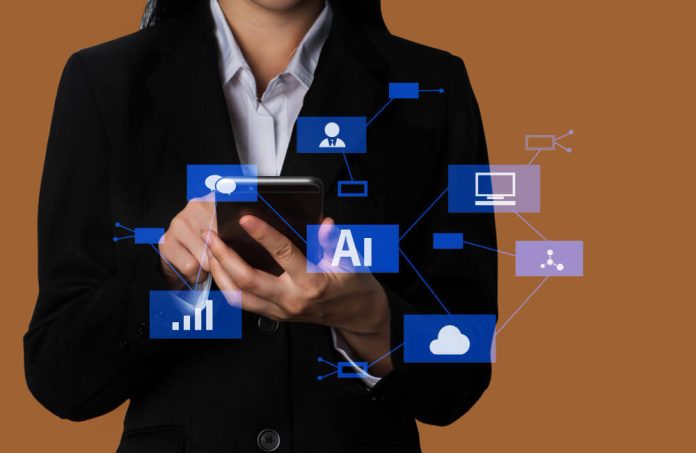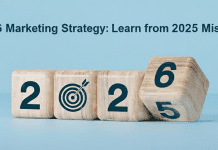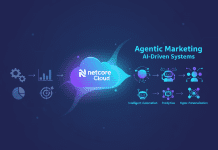The artificial intelligence (AI) landscape in marketing is evolving rapidly, with advancements poised to reshape the way businesses engage with their customers. As we head into 2025, the AI-driven marketing market is set to experience tremendous growth, with a projected increase from $27.83 billion in 2024 to $35.54 billion in 2025, reflecting a compound annual growth rate (CAGR) of 27.7%.
By 2029, this market is expected to soar to $106.54 billion at a CAGR of 31.6%. This rapid expansion is driven by the increasing integration of AI technologies in business operations, coupled with a growing need for smarter, more personalized marketing strategies.
Let’s delve into the key trends in AI for marketing that are set to dominate in 2025 and beyond.
1# AI-Enhanced Customer Journey Mapping
AI is revolutionizing the way brands understand and interact with their customers. One of the standout trends for 2025 is AI-enhanced customer journey mapping. By leveraging AI, companies can gain a deeper understanding of the customer’s path across different touchpoints.
This enables marketers to create highly personalized experiences by analyzing behaviours, predicting future actions, and tailoring messages in real-time. AI-powered tools allow businesses to anticipate customer needs and offer relevant content, products, or services, improving engagement and conversion rates.
2# Real-Time Analytics for Actionable Insights
Real-time analytics is another transformative trend in AI marketing. AI allows businesses to process vast amounts of data quickly and extract actionable insights. This capability enables marketers to make data-driven decisions on the fly, ensuring that campaigns remain relevant and effective.
By monitoring customer behavior and market trends in real-time, companies can adjust strategies, optimize ad spend, and respond instantly to customer preferences, enhancing overall marketing effectiveness.
3# Emotion Recognition & Sentiment Analysis
AI technology’s advancement in emotion recognition and sentiment analysis has become a game-changer in marketing. These capabilities allow businesses to assess how customers feel about their brand or products in real-time, providing valuable insights into customer opinions. Marketers can use this data to respond more effectively to customer needs and expectations.
Analyzing customer reviews, social media interactions, and other forms of feedback helps businesses identify emotional triggers and improve customer relationships.
This enables brands to create more impactful, personalized content that resonates with their audience. For companies aiming to build stronger connections, this trend is essential to engage customers on a deeper, more personal level.
4# Visual Search Optimization
Visual search optimization is gaining traction as AI technology continues to improve image and video recognition. This trend is transforming how customers search for products online. Instead of relying solely on keywords, users can now upload images to search for similar products.
This development is particularly beneficial for industries like fashion and e-commerce, where visual elements are crucial. By optimizing for visual search, businesses can enhance the user experience, improve conversion rates, and drive more targeted traffic to their websites.
5# AI in Email Marketing Optimization
AI is also playing a critical role in optimizing email marketing strategies. By analyzing past campaigns and customer behavior, AI can help marketers deliver personalized email content to the right audience at the optimal time. This enhances the relevance of email campaigns, boosting open rates, click-through rates, and overall customer engagement.
Additionally, AI tools can automate A/B testing, allowing marketers to quickly identify the most effective strategies and continuously improve their email marketing efforts.
6# The Rise of Virtual Assistants
Virtual assistants are another key factor contributing to the growth of AI in marketing. These AI-powered systems are becoming increasingly popular, particularly among small and medium-sized enterprises.
Virtual assistants, including chatbots and conversational agents, help businesses streamline customer service, improve lead generation, and reduce operational costs. By providing instant responses and personalized recommendations, virtual assistants enhance customer experience, making it easier for businesses to engage with their audience 24/7.
7# Data Analytics and Predictive Insights
The importance of data analytics in AI-driven marketing cannot be overstated. Data analytics tools allow companies to sift through massive datasets to uncover valuable insights.
With predictive analytics, businesses can anticipate customer behavior, identify trends, and make more informed marketing decisions. By leveraging these insights, marketers can create targeted campaigns that resonate with their audience, boost lead scoring, and ultimately improve sales and customer loyalty.
8# The Impact of Ethical AI and Explainable Marketing
As AI continues to shape marketing strategies, there is a growing emphasis on ethical AI and explainability. In 2025, businesses will increasingly focus on ensuring that their AI systems are transparent, unbiased, and fair. This shift toward ethical AI practices is driven by a demand for more responsible marketing that prioritizes customer privacy and fosters trust.
Explainable AI will also play a pivotal role in ensuring that marketers can clearly understand and communicate how AI-driven decisions are made, promoting greater confidence in AI solutions.
Conclusion
The AI in marketing market is undergoing rapid evolution, with AI-enhanced customer journey mapping, real-time analytics, emotion recognition, and visual search optimization leading the charge in 2025. As businesses adopt more sophisticated AI tools and strategies, they will be better equipped to create personalized, data-driven experiences that drive customer engagement and revenue growth.
With virtual assistants, predictive analytics, and a focus on ethical AI practices, the future of marketing is set to be transformed by artificial intelligence. Companies that embrace these technologies will not only gain a competitive edge but also set the stage for long-term success in an increasingly AI-driven world.
I hope you find the above content helpful. For more such informative content please visit Martecedge.










